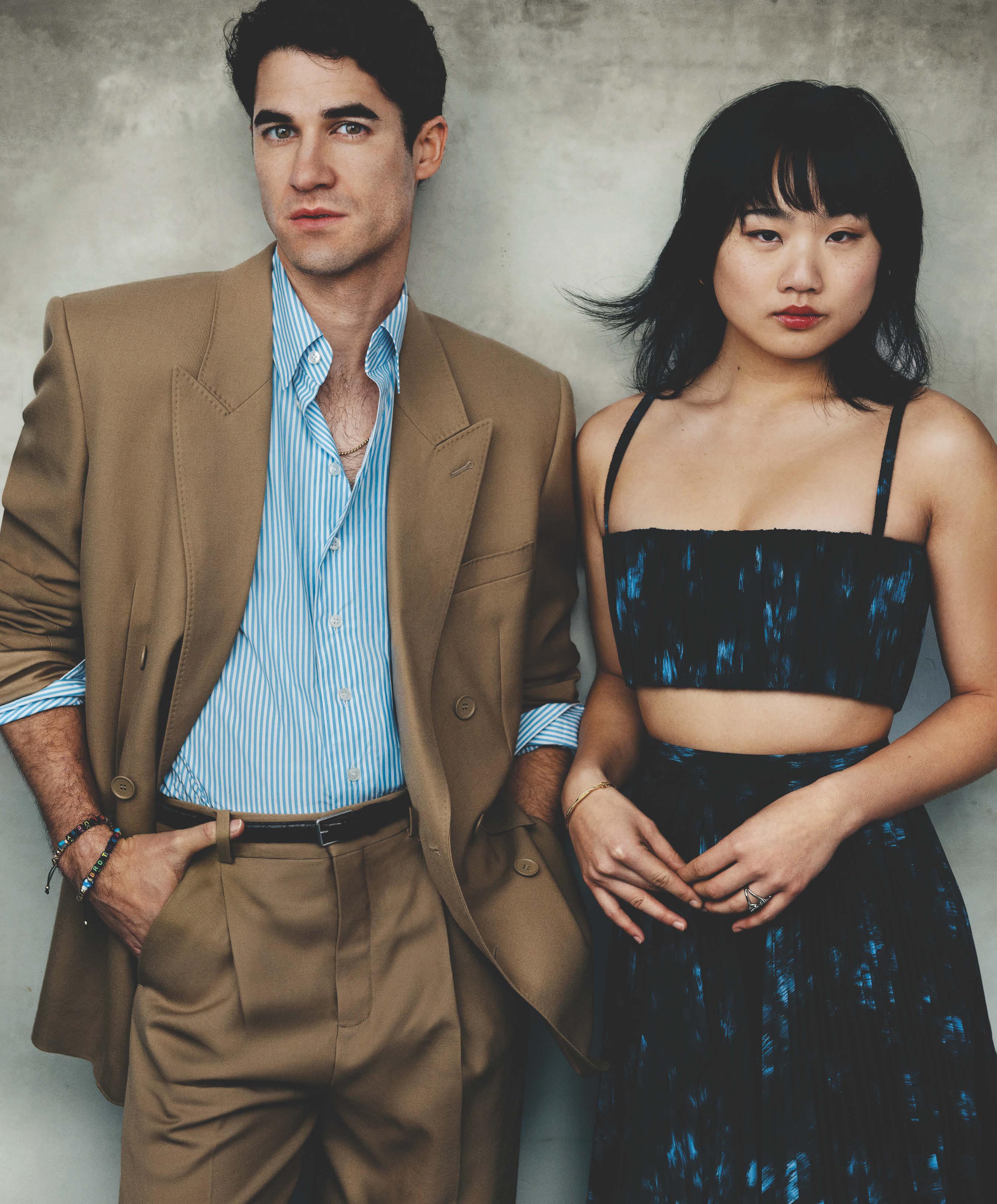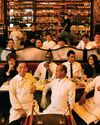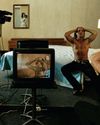Machines Like Us

Nine years ago, writer Hue Park was sitting in a Brooklyn café when Damon Albarn's song "Everyday Robots" came on. "We are everyday robots on our phones / In the process of getting home," Albarn sings. Park and his writing partner Will Aronson had been reflecting on alienation exacerbated by technology, specifically hikikomori, a form of extreme protracted social withdrawal first identified in Japan that leaves young people unable to leave their homes. They'd observed a similar affliction among their peers. "It was a trend among people our age of becoming more withdrawn and living only in your own space, where you can control everything and get what you want digitally," recalls Aronson, 43.
What if, the duo thought, you could make a musical about the phenomenon? Maybe Happy Ending-which first opened in Seoul in 2016 and has been charming New York audiences since November was the result: a show about solitary robots facing obsolescence that, paradoxically, has the most heart of anything on Broadway.
Set in near-future Seoul, it follows two discarded androids (dubbed Helperbots) on an odyssey across South Korea to track down one of their beloved owners. There are scenes of instant aversion that gradually becomes affection and screwball-comedy conversational sparring, but underneath it all are weightier themes: grief, loss, living and loving boldly in the face of our own finite shelf lives. "We wanted to write about being isolated but eventually taking the risk of leaving your little safe zone—and all the possible joys that come with that," Aronson says.
This story is from the {{IssueName}} edition of {{MagazineName}}.
Start your 7-day Magzter GOLD free trial to access thousands of curated premium stories, and 9,500+ magazines and newspapers.
Already a subscriber ? Sign In
This story is from the {{IssueName}} edition of {{MagazineName}}.
Start your 7-day Magzter GOLD free trial to access thousands of curated premium stories, and 9,500+ magazines and newspapers.
Already a subscriber? Sign In
ON THE NOSE
The liquid rhinoplasty has been growing in popularity, offering more natural and subtle effects. Would it work for me? asks Alice Gregory.

Down by the Sea
A family with deep roots on Long Island thought they knew what they wanted from a house perched between the ocean and the bay. What they got was much more. By Chloe Schama. Photographed by Simon Upton.

SALAD DAYS
Hamish Bowles reflects on Keith McNally's life and career as one of the defining figures of downtown New York's dining culture.

COMING INTO FOCUS
The fracturing of attention may be one of the defining ailments of our era. What can we do to get it back?

State of Wonder
Becoming a mother changed Hailey Bieber—her routine, her body, her marriage, her inner life. She opens up to Alessandra Codinha about adapting to all of it, looking ahead, and shutting out the noise. Photographed by Mikael Jansson.

HONEY PLOT
The golden salve has many beauty benefits.

BODY OF WORK
On the eve of a major retrospective in Paris, Rick Owens talks with Sally Singer about mortality, belonging, legacy—and the kindness and gentleness he hopes his work embodies.
TOOLS OF THE TRADE
A new generation of skin-care devices promises results previously limited to the dermatologist' office. But, asks Mattie Kahn, do they work?

WHEN CATHERINE MET MIUCCIA
Two extraordinary leading ladies collaborate on an upcycled Miu Miu collection.

Quick Study
With the high-wire, hilarious Sorry, Baby, a debut film set in academia, writer, director, and actor Eva Victor has leaped into the spotlight. Jen Wang meets a creative force to be reckoned with. Photographed by Tierney Gearon.
